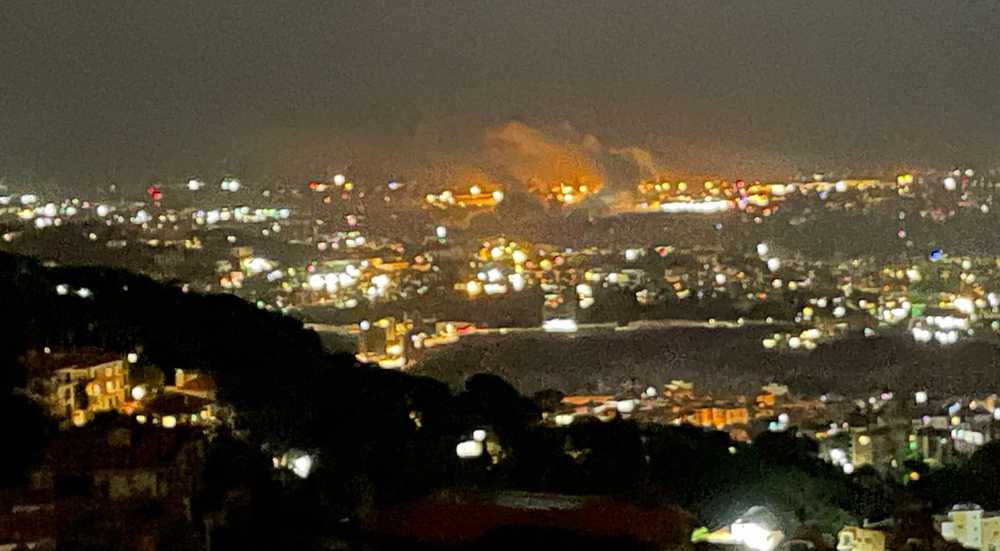HERZ in Lebanon for decades
What future is there for us?

With a long history in Lebanon, HERZ is now faced with a greatly reduced presence. The conflict between Israel and Hezbollah, which escalated sharply in 2024, was not surprising. A key moment was the targeted killing of several Hezbollah commanders by Israel to strengthen deterrence. Reactions are complex: while Israel sees these attacks as necessary to reduce the threat posed by Hezbollah, there are differing opinions about the group in Lebanon. Some see Hezbollah as a defender, others as a manipulator that jeopardises the country's sovereignty. In addition, Iran is becoming increasingly obvious as a supporter of Hezbollah, which is further fuelling tensions in the region. The geopolitical repercussions not only affect the security of Israel and Lebanon, but also jeopardise the entire regional balance.
HERZ's long-standing partner Loutfi Hert reports directly from Beirut for our readers on the actual situation in Lebanon:
Everyday life in war
Daily life here is dramatic: we wait for warnings from the Israeli army - if we are lucky, we are sometimes given 15 minutes to leave our homes and belongings before major attacks take place. People are storming supermarkets and petrol stations to get food for their families and fill up their cars to flee to ‘safer areas’ - if they can afford it at all. Since the banking crash in 2019, our savings have been taken from us; the banks are only paying out paltry sums. This is the biggest bank robbery in recent history.
The shadow of war:
Devastation and insecurity in Lebanon
In the south of Lebanon, state-of-the-art weapons and phosphorus bombs are being used. Not only are entire villages and large areas in the south of Lebanon and in the southern suburbs of Beirut being completely destroyed, but also olive groves and agricultural land that are thousands of years old. When this wave of violence ends, many people will have nowhere to return to. People are deeply frightened, lost and worried about the hours ahead as winter approaches. This part of the country is almost depopulated.
Hezbollah and its dominant role in Lebanon
Hezbollah was originally formed during Israel's occupation of southern Lebanon, when other parties were banned from possessing weapons as part of the agreement to end the civil war. Fully financially supported by Iran, Iran uses Hezbollah to further consolidate its influence in the Middle East. Hezbollah not only controls the country's politics and economy, but also the decision on war and peace. The corrupt structure means that the Lebanese themselves suffer the consequences of this violence and become victims of this system.
Bridges of solidarity in a divided society
When the recent wave of violence began, Lebanese citizens showed great solidarity despite deep political divisions that have grown over the years as part of a corrupt structure. They opened their hearts, homes, schools and public places to the innocent victims of the attacks.
Once hailed as the ‘Paris of the Middle East’, Lebanon's capital, characterised by glory days, has been further divided by decades of civil war and interference from both local and international forces, fuelling conflict in the country to this day and increasingly dividing the population. Today, Beirut is like a huge refugee camp. Throughout the country, over 1.5 million Lebanese have been forcibly displaced from their homes, making up almost 25 percent of the total population. In addition, there are almost one million Syrian refugees who have fled the ongoing conflict in Syria, which has also affected Lebanon.
The prospect of the future
It is obvious that Lebanon will not be given any money for reconstruction after the end of the war unless there is a dramatic change of government and the corrupt rule is ended. Otherwise, we will become the new Kabul of the Middle East.
I personally fear that if this war does not end soon and nothing positive comes out of it, it could mean the sad end of a great country that has been torn apart too many times and may be considered clinically dead.
- Loutfi Hert
Managing Director
Sami Hert & Sons SARL
HERZ News thanks you for the authentic insight into the current situation in Lebanon and hopes for an early end to the war in order to bring peace and stability to the civilian population. Our thoughts and solidarity are with all those who are suffering from the current challenges.

